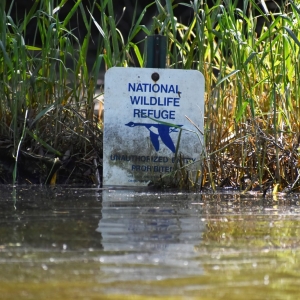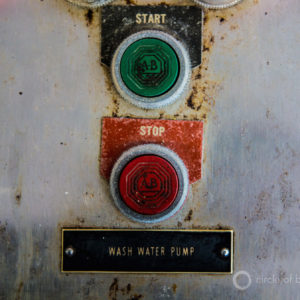The Stream, March 17, 2021: Study Links CO2 Emissions and Glacial-Fed River Fungi
YOUR GLOBAL RUNDOWN
- Researchers link higher rates of plant decomposition with warmer water in glacier-fed mountain rivers around the world.
- New research quantifies forest and wetland loss in northwestern Belize over periods of agricultural growth and conservation initiatives.
- The water utility for Tucson, Arizona will resume water shutoffs this week.
- Sudan has formally requested international assistance in mediating negotiations with Egypt and Ethiopia over a controversial dam.
Environmental groups in Washington state sue an electric company for allegedly violating the Clean Water Act.
“They cause a lot of fish kill and pollution in the river, and they have to be held liable for that.” – Citizens for a Healthy Bay Executive Director Melissa Malott. Environmental groups in Washington state filed a lawsuit against Electron Hydro LLC after turf polluted the Puyallup River during a construction project last year, the Associated Press reports. The groups allege the electric company violated the Clean Water Act after portions of a layer of turf placed in the bed of the river escaped and flowed downstream. This is the third lawsuit filed against the operators of the Orting hydropower dam in recent months.
IN RECENT WATER NEWS
Wetlands Can Help Prevent Property Damage and Save Lives During Floods
Midland and other cities were hit hard by a flood caused by of a weak dam.
More than 2,500 homes were damaged. There was an estimated $245 million dollars in property damage.
If that flood happened a few years ago, the damage could have been worse. But, there’s been a change. One thousand acres of restore wetlands helped reduce the severity of that flood.
In Case You Missed It:
Treaty Rights Acknowledged For First Time in Oil Pipeline’s Controversial History – Michigan’s Indigenous communities hold long-standing legal rights to protect lands and waters.
HotSpots H2O: With History of Pollution, British Water Utility Will Now Alert Residents to Sewage Spills – Thames Water Utilities, the United Kingdom’s largest water company, is creating a system to alert the public to sewage discharges into British rivers and streams.
New Research Quantifies Forest and Wetland Loss in Belize
New research published in the journal Remote Sensing found significant losses of forests and wetlands and successful regrowth of forest in established conservation zones in northwestern Belize over four decades. Researchers used satellite images from NASA’s Landsat archive to quantify land-use and land-cover changes in Belize’s Orange Walk District from 1984-1987, 1999-2001 and 2014-2016. These periods correspond with rapid changes in agricultural systems and conservation initiatives.
TODAY’S TOP WATER STORIES, TOLD IN NUMBERS
$75
Tucson Water resumed water shutoffs on Monday after a moratorium expired, KVOA reports. The water utility company said shutoffs will occur for accounts with a debt of $75 or more. In January of this year, total water debt for Tucson Water customers was at $9 million, up $6 million from last year.
In context: Millions of Americans Are In Water Debt
4 INTERNATIONAL ENTITIES
Sudan’s Prime Minister has formally requested the United Nations, African Union, European Union and the United States to help mediate negotiations between Sudan, Ethiopia and Egypt over filling and operating the Grand Ethiopian Renaissance Dam. Al Jazeera reports that the three countries have been unsuccessful in negotiating the terms of the dam for almost 10 years. In letters sent to the four international entities, Sudanese Prime Minister Abdalla Hamdok expressed concern over Ethiopia’s stated intention of adding more water to the dam’s reservoir for a second year.
In context: HotSpots H2O: Tensions Rise in Horn of Africa as Ethiopia Fills Controversial Dam
ON THE RADAR
A researcher team led by the University of Leeds has linked glacier-fed mountain rivers with higher rates of plant material decomposition for the first time. As climate change accelerates mountain glacial melting, warmer water is channeled into rivers downstream. The rivers become less prone to variable water flow and sediment growth, creating much more favorable conditions for fungi to establish and grow. Fungi decompose organic matter, eventually leading to the release of carbon dioxide into the air. The process has now been measured in 57 rivers in six mountain ranges around the world.
Jane is a Communications Associate for Circle of Blue. She writes The Stream and has covered domestic and international water issues for Circle of Blue. She is a recent graduate of Grand Valley State University, where she studied Multimedia Journalism and Women, Gender and Sexuality Studies. During her time at Grand Valley, she was the host of the Community Service Learning Center podcast Be the Change. Currently based in Grand Rapids, Michigan, Jane enjoys listening to music, reading and spending time outdoors.






Leave a Reply
Want to join the discussion?Feel free to contribute!